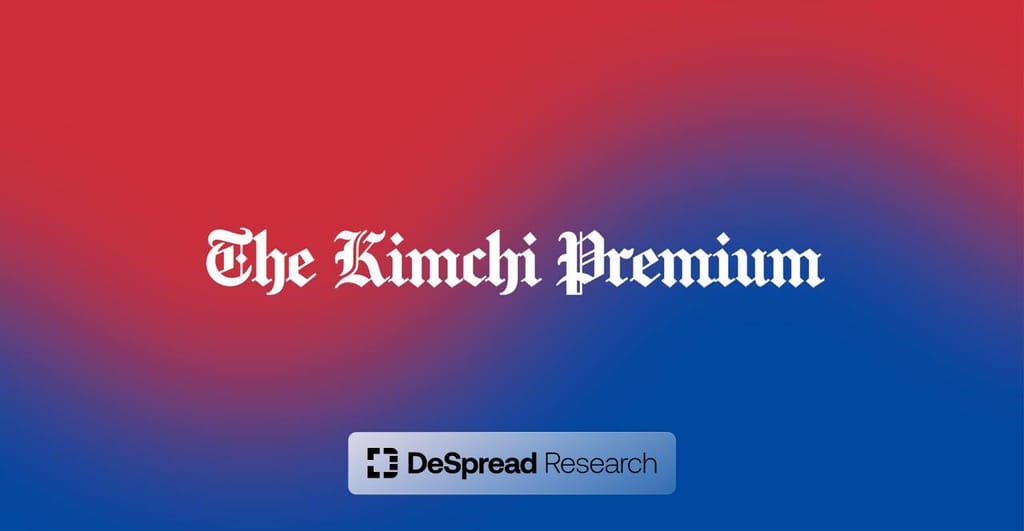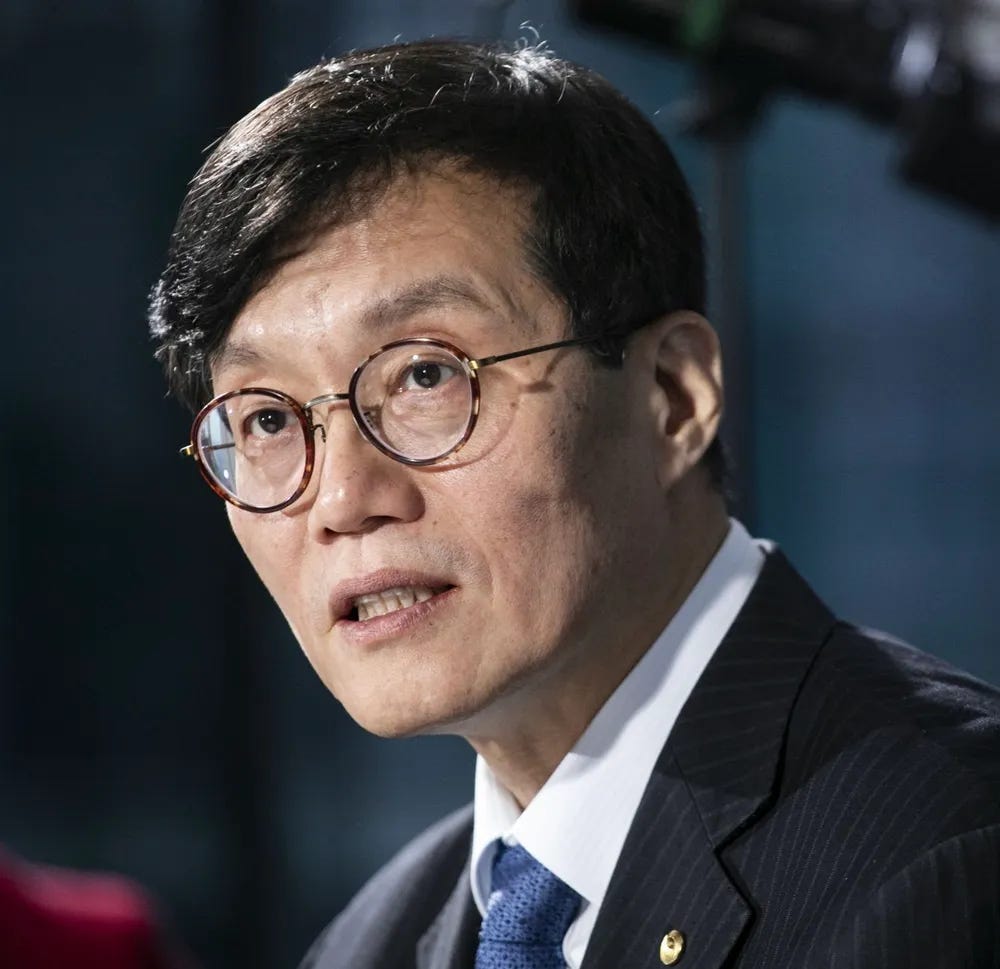
Korean degenerate bidding is about to get bigger
The Kimchi Premium #4: Recap of Korean crypto community trends for week 2 in October

The Kimchi Premium is a weekly series that looks back at the hottest topics in the Korean crypto community.
Korea is probably one of the most wanted markets in the crypto world. However, the lack of consumer protection and regulations create a stark contrast to its trading volume.
But last week, the suits are on the move now:
- The Financial Services Commission (FSC) is set to review the approval of spot cryptocurrency Exchange-Traded Funds (ETFs) and the allowance of institutional accounts for crypto trading.
- The FSC is also planning to launch the the Virtual Asset Committee, a policy and institutional advisory body stipulated in the Virtual Asset User Protection Act, as early as this month.
This move from upstairs had corporations’ balls tingling. Big names like SK, Shinhan Bank, Kookmin Bank, and NH Bank have already invested in custodial services since 2020. We can expect more corporations trying to take a piece of the pie because they are expecting the custody market to see significant growth in the coming years.
Until now, all Korean exchange volume were (allegedly) only made by retail users. And the lack of institutional trading accounts were pointed out as one of the reasons behind price discrepancies on Korean exchanges, known as the “Kimchi Premium”, where Korean exchange prices would be significantly higher than foreign exchanges during frenzies.

It’s good to have a proper team of experts to oversee the industry because it will result in more sensible policies and better consumer protection. But on the other hand, sitting members of the National Assembly seemingly have less interest in crypto policies as they have not brought up anything related to crypto during the annual National Assembly inspection.
ChosunBiz writes:
Cryptocurrency matters have been notably absent from this year's parliamentary audit. Unlike the Luna crash of 2022 that captured public attention, there hasn't been a standout issue to draw significant interest. The political landscape seems to have shifted away from crypto concerns, with even the opposition party's key promise to introduce Bitcoin spot ETFs fading into the background.
According to financial sector sources on the 10th, both ruling and opposition parties have agreed not to summon cryptocurrency industry representatives or related figures as witnesses or references in the inpsection that began on the 7th. Cryptocurrency market issues have also been excluded from the main agenda items slated for discussion.
[…]
A political insider commented, "Lawmakers need to maximize their visibility during the annual inspection." He added, "This year, they appear to be focusing on the series of banking scandals and the Timef(티메프) incident." The source also noted, "The implementation of the Virtual Asset User Protection Act on July 19th has reduced the likelihood of another Luna-like crisis, which is another reason why cryptocurrency issues have been sidelined in this inspection."
The absence of headline-grabbing crypto events and the recent regulatory measures seem to have pushed digital assets out of the political spotlight for now. However, this shift in focus doesn't necessarily indicate a long-term trend, as the volatile nature of the crypto market could quickly thrust it back into the political arena should significant developments occur.
Unlike the US, where crypto started out as a cypherpunk experiment, it is mostly perceived as a risky investment in Korea. I mean, even in the US the tides have shifted and degens took over the discourse, but still the US has some sort of ideological alignment to crypto.
Libertarians and anarchists are staunch supporters of Bitcoin, but in Korea these type of ideologies have nowhere to stand. Bitcoin and crypto are purely investment opportunities. No political alignment means less representation, thus the lack of discourse during major political events.
But No to Stablecoins?
Anways, let’s get back to policy.
After all the good news they still had to be the party pooper as usual. Rhee Chang-yong, the head of the Bank of Korea (BOK), stated that there is a need to regulate stablecoins.
Seems like this move was inspired by reports from media outlets that claimed stablecoins might become an issue in the near future. So it somehow became a collective effort between the administration and the BOK.

Rhee mentioned that stablecoin regulation is actually a very big issue and suggested the use of CBDCs because they are transparent. However, CBDCs require international coordination between nations, which makes it very hard to implement.
My guess is because Korea has a history of currency devaluation. Back in 1997, there was this thing called the Asian Financial Crisis.
TL;DR: Korea borrowed a lot of money, used it for unprofitable stuff, couldn't pay it back when the time came, then accepted help from the IMF.
During this time the Korean Won was devalued by 2,000 won against one US dollar. Today it is around 1,350 won against one dollar. Koreans’ purchasing power dropped while unemployment surged, led the nation into a severe recession followed by numerous bankruptcies, and left a longing societal impact.
Now imagine something like this to ever happen again, but this time people can sell their Won for Dollars on the blockchain. I don’t think I would like that if I was in charge.